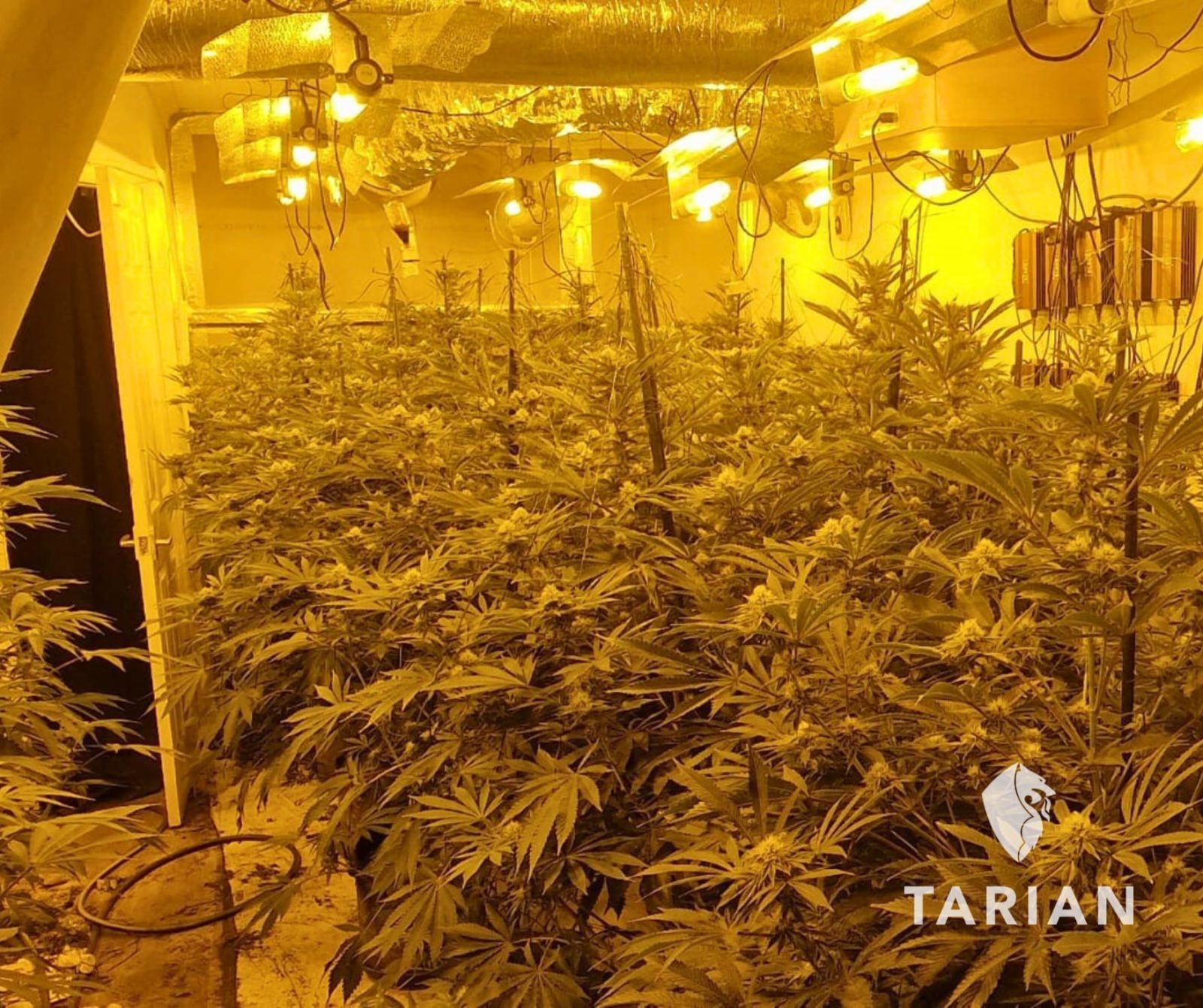Unprecedented police operation against organised crime leads to 52 arrests and £8.7 million of cannabis seized across southern Wales
Throughout June, police forces in England and Wales took part in an intensification period designed to disrupt Organised Crime Groups (OCGs) by taking out a key source of their revenue, whilst simultaneously apprehending many of those involved, safeguarding those being exploited, and increasing intelligence.
Criminal networks involved in drug dealing, immigration crime and money laundering were targeted by police and partner agencies as part of Operation Mille, which saw forces focus resources on tackling large-scale cannabis cultivations – a key source of illicit income for organised gangs.
Tarian, the Regional Organised Crime Unit (ROCU) coordinated the activity in southern Wales.
During the month, across the three police forces covering southern Wales, namely South Wales, Gwent and Dyfed Powys Police, the following was achieved:
- 73 warrants executed;
- 52 arrested for offences including Production of Cannabis, Producing a Class B Drug, and Cultivation of Cannabis;
- 43 individuals charged;
- 16,273 cannabis plants seized with an estimated street value of more than £8.7 million;
- Mobile phones, cash and forged documentation also seized.
The links between serious crime and those involved in cannabis cultivation are clear, with the drugs trade fuelling gang violence as groups compete for territory and look to hunt out their opposition.
Wendy Gunney, the Assistant Chief Constable for Tarian ROCU, said: “The Regional Organised Crime Unit for southern Wales has worked closely with the national policing network to successfully target and disrupt organised cannabis production in our region.
“This type of criminality has an extremely detrimental impact on our communities and it is vital that we continue to collaborate with law enforcement partners and external agencies to disrupt offenders.
“I would like to thank all those involved in our region’s efforts on Operation Mille; their determination and resilience has led to our successful outcomes. We have also gathered a significant amount of data which will help focus our future efforts in tackling Organised Crime Groups and safeguarding those at the greatest risk of harm.”
Cannabis factories present a very real local threat. The size of criminal cannabis ‘factories’ means that damage is often caused to the properties themselves; the buildings can become dangerous as a result of fire risks, unlawful abstraction of electricity, fumes and water damage.
Some key signs to spot a property could be being used as a cannabis factory:
- Frequent visitors to a property at unsocial hours throughout the day and night.
- Blacked out windows or condensation on the windows, even when it is not cold outside.
- Bright lights in rooms throughout the night.
- Electricity meters being tampered with/altered and new cabling, sometimes leading to street lighting. High electricity bills could also be an indicator.
- A powerful, distinctive, sweet, sickly aroma and noise from fans.
- Lots of work or deliveries of equipment to an address, particularly those associated with growing plants indoors without soil such as heaters and lighting.
- An excessive amount of plant pots, chemicals, fertilisers, and compost.
Anyone with information about a potential cannabis factory or drug dealing can contact their local force online or via 101.
People can also contact Crimestoppers, anonymously, on 0800 555 111 or crimestoppers-uk.org









Leave a Reply
View Comments